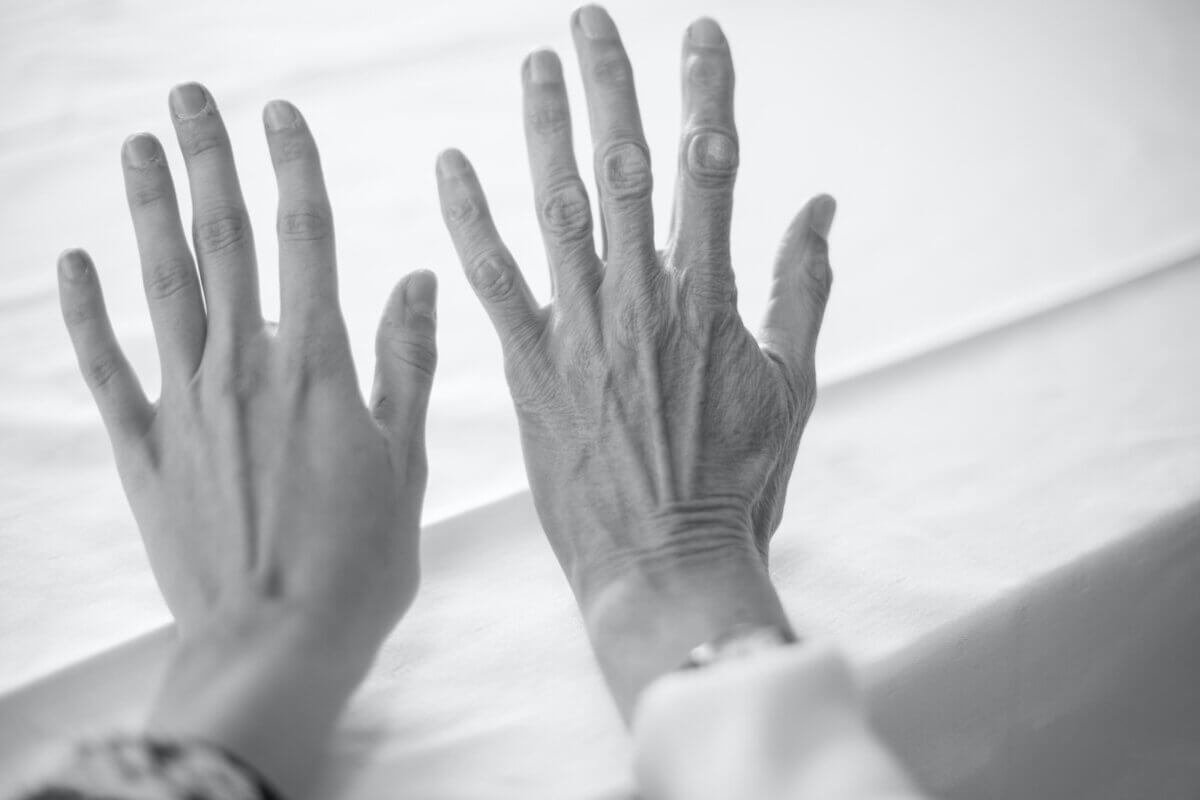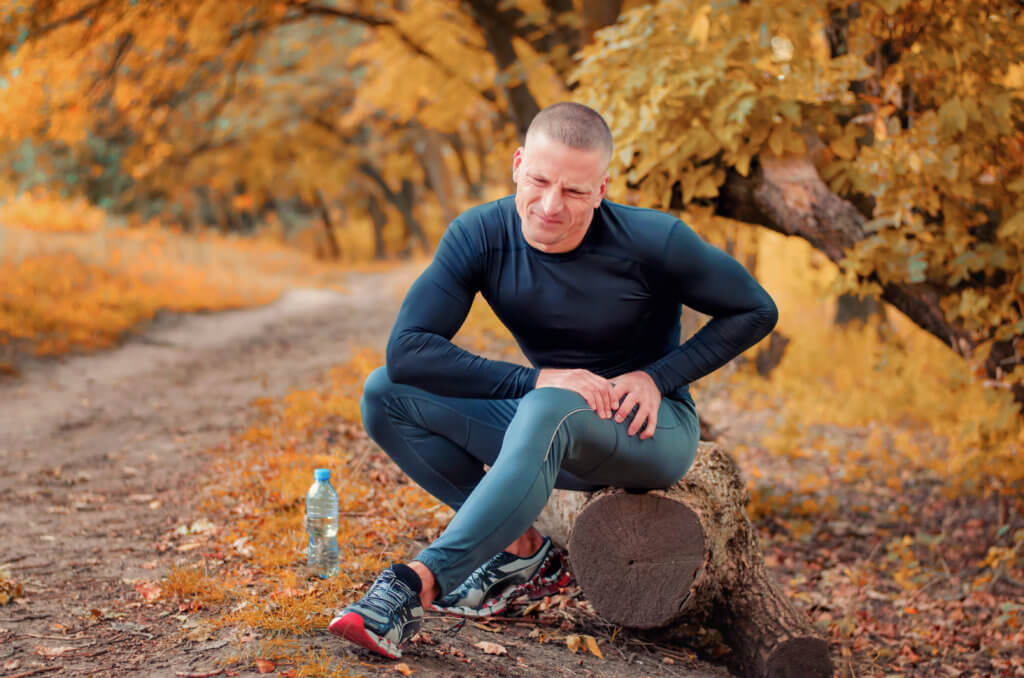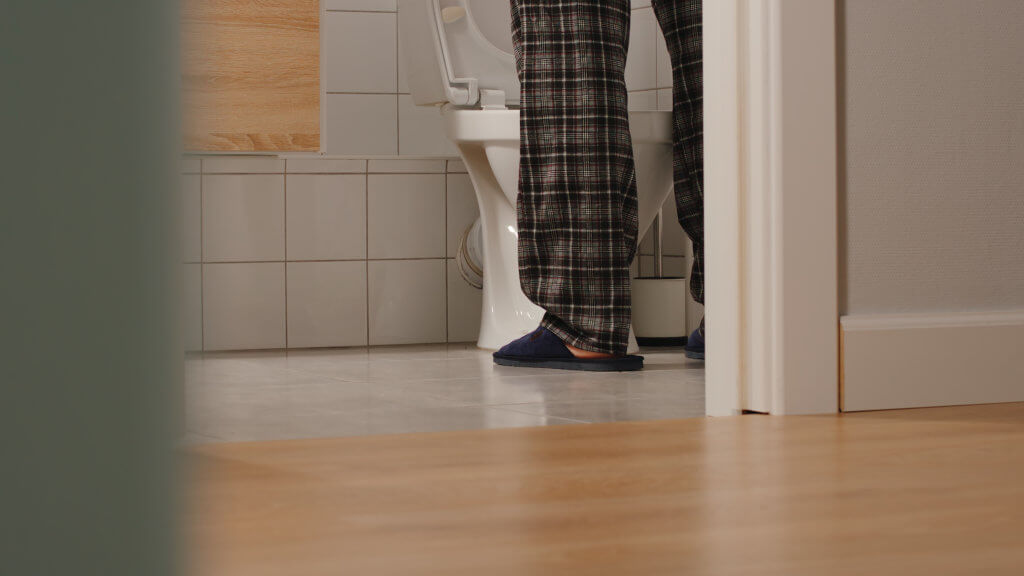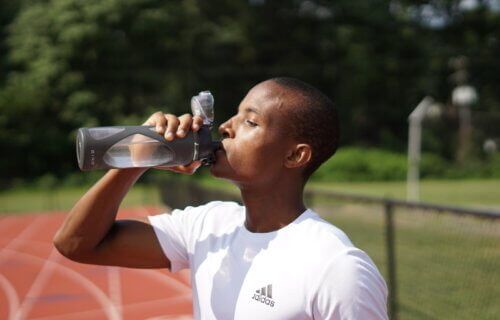It’s 103 degrees on a midsummer Manhattan afternoon. I was doing my daily run down Riverside Drive along the Hudson, from 97th to 55th Streets. On the way back, I felt lightheaded, and suddenly got shaking chills, goosebumps, and other symptoms. I didn’t know what was happening, but it couldn’t be good. This was before med school. I made it home, but nearly collapsed. It was dehydration. As an editor at Diagnostic Medicine, coffee was my main daytime sustenance. Unfortunately, I was experiencing the alarming symptoms that tell you to act NOW — you’re dehydrated.
Dehydration occurs when your body loses more fluid than you’re taking in. About two-thirds of your body weight is water. Every cell needs water, and it’s the main substance in all of your bodily fluids – saliva, blood, tears, urine, sweat, joint fluid, and many more. Water is critical to heart health, gastrointestinal (GI) health, skin health, brain health, and just about everything else health-related.
You can become dehydrated for many reasons. The most common – just not drinking enough water. Some sources of loss are excessive sweating, excessive urination, fever, diarrhea, and vomiting. It doesn’t take much to become dehydrated. A loss of one to two percent of total body water is enough to impair cognitive performance.
You may just feel thirsty, but the later stages of dehydration can lead to a loss of consciousness. Here are some of the other signs of dehydration which may be unfamiliar to you:
1. Sugar Cravings
Dehydration can feel like hunger, especially a craving for sugar if you’ve been exercising. When you exercise in a dehydrated state, you use glycogen (stored carbohydrates) faster, diminishing your stores quickly. So, you may crave carbohydrates to replace glycogen stores.
2. Dry Skin
If you aren’t drinking enough water, your skin may feel tight and look dull. Especially in older people, it may look like crepe paper. You may even notice exaggerated facial wrinkles or darker under-eye circles.
There’s a quick test for dehydrated skin. Pinch the skin on the back of your hand. It should smooth out immediately when you let go.

3. Bad Breath
Have you ever wondered why your breath smells bad in the morning? Like most cases of bad breath, morning breath is caused by bacteria. Usually, saliva washes away the debris in your mouth that collects bacteria, but when you sleep saliva production goes down. That means it’s more difficult for your mouth to fight the bacteria that cause bad breath. A dry mouth at any time can let bacteria flourish. If your mouth is dry, drink more water.
4. Chills
It may seem counterintuitive, but dehydration can bring on chills, says Luga Podesta, MD, sports medicine specialist at Kerlan-Jobe Orthopedic Clinic in Los Angeles, California. It occurs because your body starts to limit blood flow to the skin. In addition, water holds heat, so if you become dehydrated it can be more difficult to regulate your body temperature, even when you’re not in a cold environment.
5. Irritability
If you’re feeling cranky, drink a glass of water and your mood may change. The neurological effects of dehydration can cause irritability. A study of 52 adults examined the effects of hydration on mood. Those who habitually had low water intake, when water intake was increased, showed an improvement in mood, particularly when waking up. Those participants whose water intake was high reported negative effects on mood when water intake was reduced; this effect was most noticeable on calmness and positivity.
6. Muscle Cramps
When your body isn’t getting enough water, it slows down blood circulation, which can make your muscles cramp, says Ray Casciari, MD, a pulmonologist in Orange, California.
“The body will protect its vital organs, so it shifts fluid away from muscles and anything that’s not vital,” Casciari adds in a statement.
Changes in sodium and potassium through sweat loss can also contribute to cramping. Cramps can be extremely painful and make muscles feel harder to the touch.

7. Headache
Dehydration can cause headaches in a couple of different ways. Lack of water affects your body’s serotonin levels, which can give you headache. Small blood vessels in the brain respond quickly to hydration levels. This is the mechanism associated with the headaches of hangovers. It can produce dull aches and acute migraines.
Try downing a glass or two of water the next time you have a headache, and you may find it disappears. You could also eat fruit with a high-water content.
8. Constipation
According to the National Institute of Diabetes and Digestive and Kidney Diseases, your body needs water to keep things moving through your colon. When you’re not getting enough H2O, your body compensates by withdrawing more fluid from stool, making it harder and more difficult to pass. However, it’s worth noting that drinking more water when you’re already properly hydrated won’t necessarily relieve constipation caused by other factors, like the medications you’re taking, medical conditions, or a lack of fiber in your diet.
9. Dark-Colored Urine
One telltale sign of dehydration is dark yellow urine. When you’re dehydrated, your kidneys, which filter waste, tell your body to retain water. This means you’ll have less water in your urine, causing it to become more concentrated with waste products and, therefore, darker. If you notice your urine is darker than usual, reach for your water bottle.

10. Low Blood Pressure
Among the plethora of symptoms indicating dehydration, low blood pressure can be especially dangerous. The symptoms of low blood pressure associated with dehydration can include nausea, dizziness, and blurred vision. It’s important to be aware that these symptoms may indicate dehydration, as many of us don’t have blood pressure cuffs at home.
It means your blood isn’t getting to vital organs, including the brain. Certain blood pressure medications act as diuretics, which make the body urinate fluid out of it much faster. People who take these medications are more susceptible to becoming dehydrated.
You might also be interested in:
- Best Water Bottles: Top 5 Reusable Products Most Recommended By Experts
- Best Water Filters: Top 5 Purifiers For Clean H2O, According To Experts

